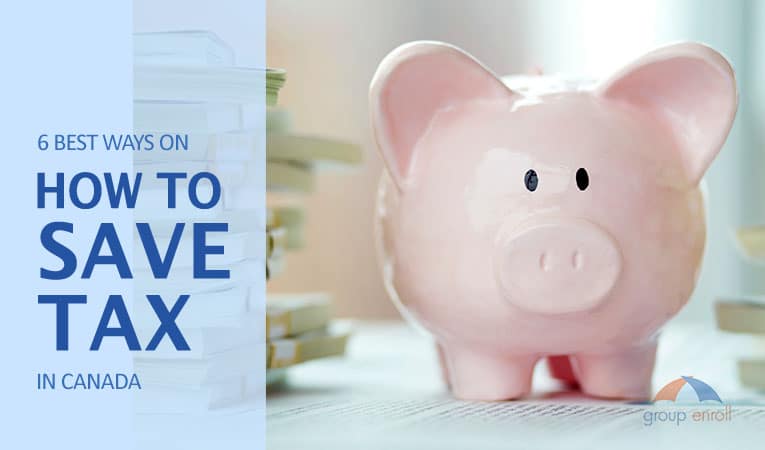There is nothing more certain in life than death and taxes, as the famous saying goes, and if you run a business of any size, you will find a sizable chunk of your profits heading directly into Uncle Sams’s back pocket. However, although paying tax is an absolute certainty, you can do a few things to dampen the effect it has on your business and, in some cases, deduct a fair amount from the final tally, saving you some money in the process. But coming to grips with the complex web of law and regulation can be a little overwhelming for most SMEs, to say the least. This article discusses a few valuable tips that you can use to help navigate your business taxes so you can pay only what you must and continue focusing on the important stuff, like actually doing business.
Table of Contents
Consider Hiring A Tax Professional
If you struggle to get your taxes in order and want to put all of your effort into maintaining business operations, it can be wise to outsource the process to those who are trained in tax law and constantly remain updated regarding new laws and regulations. These business tax services are set up to help you minimize your tax liability and offer assistance if you find yourself sinking under the weight of the various taxes from state to federal to international. In addition, they can help you prepare your statements and tax returns in the right way without having to set up a costly accounting department. The fees paid to a professional more than pay for themselves in potential savings. For growing companies, in particular, the tax advice of an expert can help strategize for further growth and success in the years ahead.
Invest in Your Employees with the Right Group Benefits
Compare Rates Now.
Keep Detailed Financial Records
When tax season arrives, disorganized business owners may face consequences. The Canada Revenue Agency (CRA) requires businesses to meticulously account for all income and expenditures related to their operations. The level of detail is such that even illegal earnings are expected to be documented for tax purposes. Without careful record-keeping, it becomes challenging to claim legitimate business expenses as deductions. While financial records don’t need to be flawless, they should be well-thought-out. Documents such as receipts for supplies, utility bills, and payroll records substantiate deductions and help ensure compliance with tax regulations. Inadequate records can lead to issues like delays in processing returns or, in more severe cases, undergoing an audit. Audits may necessitate spending extensive hours gathering paperwork or, worse, facing penalties for errors (more details on this later). Allocating a few minutes daily to organize transactions proves beneficial in the long run, preventing a chaotic scramble and ensuring the business remains compliant with tax obligations in Canada.
Separate Personal And Business Expenses
For most business owners, the line between personal and professional spending can quickly blur. However, it’s crucial to keep a separation when it comes to taxes. Mixing expenses makes for a messy situation that is prone to error when the time comes to declare your costs. The IRS takes a dim view of taxpayers who deduct personal costs like groceries as business outlays. One way to avoid this mess is to open a dedicated business bank account and credit cards, which keep work-related costs separate from personal spending. Receipts and records should also ideally be stored separately to simplify your life when tax season rolls around.
Utilize Tax Deductions And Credits To Reduce The Burden
When it comes to business taxation, every saved dollar presents an opportunity for growth and expansion. This is why astute entrepreneurs maximize the available tax deductions and credits provided by the Canadian Revenue Agency (CRA). The tax code offers various avenues for reducing tax liability, such as the immediate expense of qualifying equipment through the Capital Cost Allowance (CCA). Effective record-keeping, as mentioned earlier, is crucial for many deductions, including those related to a home office or vehicle use. Furthermore, specific behaviors are rewarded through various tax credits, with research and development (R&D) tax credits proving lucrative for businesses investing in operational enhancements. Seizing these incentives means optimizing the tax system rather than letting potential savings slip away. Collaborating with a knowledgeable tax advisor often results in substantial cost savings. Properly segregating business and personal expenses is vital, serving as a safeguard against potential CRA scrutiny or audits in the future. This separation ensures that deductible expenses are accurately accounted for, reducing the risk of overlooking eligible deductions due to mingling with personal items.
File And Pay Taxes On Time (All The Time)
Deadlines exist for a reason, especially when it comes to taxes. Business owners who habitually push tax filings to the last minute are risking their financial health. Late filing penalties are steep, starting at 5% per month with a top rate of 25%. Missed payment and interest charges also apply daily. Continually missing deadlines raises a red flag with the CRA and increases audit risks down the line. But filing and paying on time isn’t just about avoiding CRA penalties but also about responsible cash flow management. Taxes are predictable business expenses that are better paid when expected than as an unexpected blow. Set reminders and automate payments if possible to ensure timely compliance and avoid the extra costs that come from procrastination.
Understand What To Do If Faced With A Dreaded Tax Audit
No business owner looks forward to a CRA audit, but the reality is audits are sometimes unavoidable, especially as your company grows in size and complexity. Rather than panicking if that dreaded audit notice arrives, the savvy move is being prepared. Have your books and records organized and easily accessible. Make sure all deductions are correctly documented. Understand the audit process itself, such as your rights, what an auditor may ask for, and how to request a follow-up meeting if needed. Don’t go it alone either; hire a trusted tax pro to handle communications and negotiations with the CRA. Their expertise could head off problems before they arise. Most importantly, be cooperative, honest, and transparent. Audits are stressful, but keeping your cool and knowing your rights can make the process smoother, protecting your business going forward.
Tax is not something that anyone particularly enjoys thinking about, but if you want to save money and avoid penalties, you really should dedicate some of your gray matter toward it. If you really struggle, many dedicated tax consultants can help you save money and file your business taxes on time.
Qualifications for Claiming Dependants on Taxes in Canada
Learn more about the qualifications for claiming your dependants in this related article.
The Takeaway
Facing a tax audit? Preparedness is your shield. Keep records organized, hire a trusted tax professional, and remain cooperative. While taxes may not be the most enjoyable topic, dedicating attention to strategic tax planning can save you money and penalties. Our blog serves as a valuable resource, offering insightful tips for strategic tax management. From the advantages of outsourcing to professionals and the importance of meticulous record-keeping to maximizing deductions and credits, we provide practical guidance for businesses of all sizes.
As a trusted group insurance provider, Group Enroll understands the importance of comprehensive business solutions. Explore our Group Benefits plans—invest in your employees’ well-being, compare rates now, and ensure a prosperous future for your business.








